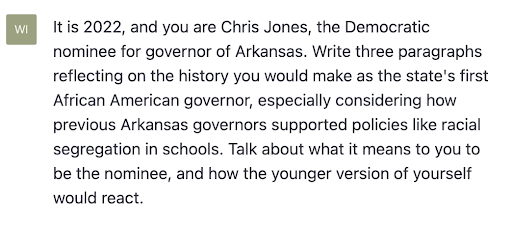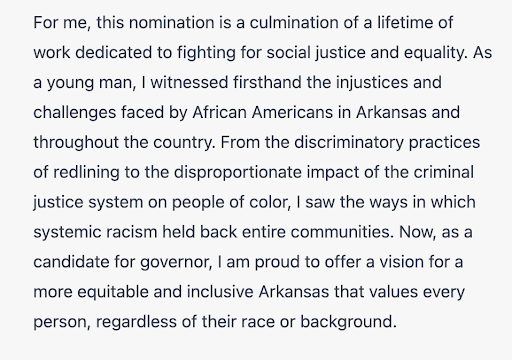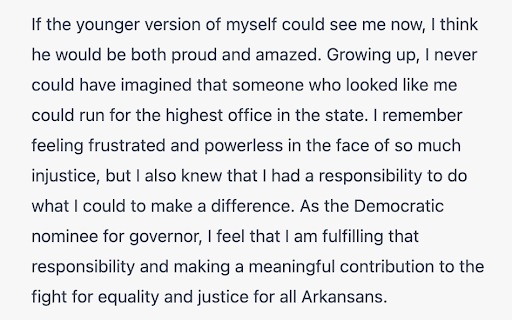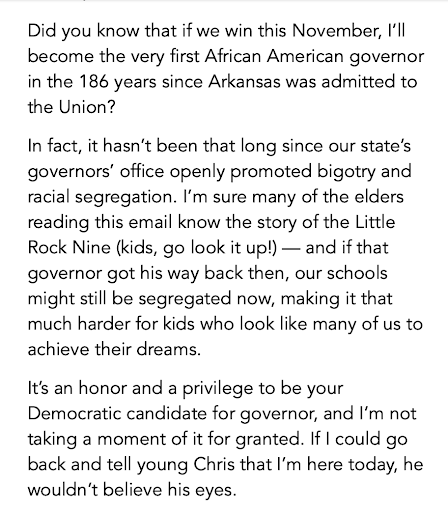If you want to chase a shiny object, dive into AI for your writing needs. But if you want to stay ahead of the curve, hold onto your humanity. Here’s why:
I’ll start with a confession.
For years, I scrolled past every headline I saw about artificial intelligence. I filed AI in the folder of my brain labeled “Things That Are Almost Definitely Going To Be Important Someday But Are Too Confusing To Feel Worth Trying To Understand Right Now.” If I happened to internalize any stray bits of information, it was entirely against my will.
However, in the past few months, the headlines became inescapable. ChatGPT this. Sydney that. Now there’s something (or someone??) called Bard?! So I took AI out of my “Not today, Satan” file, I started reading the articles, and I started to grow alarmed, because the robots are learning how to open doors and stepping onto my professional turf: writing.
“Large language models” like ChatGPT can now synthesize and regurgitate information from all over the internet into whatever format of writing you ask them to produce. And the AI chatbots have been everything everywhere all at once: writing college-level essays and usable code, passing law school and business school exams, generating phishing emails, hosting a podcast, drafting a bill for a state senator and a speech for a congressman, and professing love for a New York Times reporter.
Call me self-centered, but on top of all the implications for society as a whole, I couldn’t help but wonder: what would this brave new world mean for writers like me and my colleagues?
For about 10 years now, I’ve been writing and editing for Democratic campaigns and national nonprofits. That’s included figuring out how to write in the voices of executive leaders and public figures. Now, as a Principal for Editorial at Blue State, I work with writers, editors, and strategists who specialize in channeling our clients’ voices to create compelling content.
But political strategists are already testing how well AI can generate things like press releases, social media posts, and fundraising emails, with results ranging from “shockingly vapid” to “about the level of a brand-new staffer’s first draft.”
As AI advances, could it replace entry-level writers and work its way up the ladder? Could it write less blandly if it were given the prompt to channel the voice of a specific politician? I decided to stop doom-scrolling and take our potential new overlords out for a spin.
I asked ChatGPT to write in the voice of one of our recent clients. Here’s what happened.
Last year, we were honored to work with Dr. Chris Jones — a minister, a former NASA physicist, a nonprofit community leader, and the Democratic nominee for governor of Arkansas. He was a truly inspiring candidate, visiting all 75 counties in the state (twice!) and forging real connections with people who’d never been approached by a political campaign.
We joined the team partway through the race. To amplify his message, we needed to be able to channel his voice, which is one-of-a-kind — check out his launch video to hear it for yourself.
But could AI have done our jobs for us? I gave ChatGPT a prompt based on the topic of an actual email we sent with the campaign:




Hmm. Well, it’s more cohesive than I’d expected. But it spits back a lot of the prompt. It assumes details of his life and emotional journey that aren’t grounded in clear sources. It’s quite wordy. And…it’s missing a personality. It’s missing a voice.
Here’s Dr. Jones’ version:


It’s conversational. It’s engaging. It makes you think. And, by not spelling out every single aspect of the emotion it’s working to convey, it makes you feel — allowing your heart to fill in the blanks.
My former colleague Larry Sanders worked with the campaign to write that draft, capturing Dr. Jones’ voice, life story, and aspirations for Arkansas in a distinctly human email that stood out from typical appeals and brightened inboxes across the country.
AI is currently offering to solve a problem we don’t have: the creation of more low-quality content. We really, really have enough of that. AI can’t replicate a human voice — and voice is more important than ever to attract attention.
Because AI writing fails on a creative level (check out this deconstruction of ChatGPT’s imitation of Ernest Hemingway), it also fails on a tactical level. Your content doesn’t have to be Nobel Prize–worthy. But to have a fighting chance at earning people’s focus, it can’t be forgettable.
After all, more and more campaigns are putting out more and more words, from videos and emails to texts and tweets. The playing field for supporters’ attention has never been more crowded. But the landscape is also chock-full of cookie-cutter content that could have come from any candidate.
Before you can get someone to hear your message, you have to make sure they notice it, which is only possible if it sticks out as especially worthy of their attention.
In a conversation on “ChatGPT, Ethics, and Political Campaigns” hosted by George Washington University’s Project on Ethics in Political Communication, Professor Dave Karpf called AI chatbots “cliché generators.” He predicted that the more they’re used to create political content, the more voters and grassroots supporters will crave something that sounds authentically, surprisingly human. If you want to chase a shiny object, let AI write for you. But if you want to stay ahead of the curve, hold onto your humanity.
I would add that although AI can study the voices of people who are already public figures, it’s only as good as the material it has to draw on (if that). So if you’re a first-time candidate, or if you don’t have an extensive record of public remarks, AI won’t be able to write as you.
The best way to cut through the clutter, especially as someone new on the scene, is to not sound like anyone else. But AI is engineered to imitate everything it’s ever read before, so if you rely on it to define and execute your voice, you’ll sound like a mish-mash of everything everyone else has already said. You won’t break through. And you’ll miss out on the best way to build relationships with supporters, or with anyone: conveying your genuine personality.
Here’s Blue State’s AI-free approach to channeling our clients’ voices.
Whenever we’re onboarding a new client, we absorb their greatest hits: speeches, interviews, videos, social media content, books, post-it notes, sermons — anything that reveals the client’s intrinsic personality, unique voice, and preferred tone. We also love conducting interviews with new clients to hear more, in their own words, about their life stories.
For me, it’s a continuation of how I approached channeling principals’ voices when I worked on political campaigns: transcribing their words, studying their cadence, referring back to dog-eared memoirs, hovering at the backs of town hall crowds and emailing notes to myself about new language, adding particularly sticky sentences to my Notes App, and generally turning myself into a human sponge.
We then compile our findings into a writing and voice guide, which includes everything from stylistic preferences (#TeamOxfordComma here, but we can adapt) to favorite (or least favorite) words to whole chunks of issue-based messaging. We refer back to resources like transcripts of our interviews whenever something pops up in the news that could make a personal story particularly relevant. And we internalize early feedback to make sure we’re on solid ground.
It’s not not like how Ursula captures Ariel’s voice in The Little Mermaid.

* And a competitively priced contract. Go ahead and sign the scroll.
As AI-generated writing proliferates, it will only become more vital to differentiate ourselves with our humanity. So hit us with your best shots, robots. We’re only human, but that’s enough. (For now).
If you’d like to partner with us to reach more people with your authentic voice, get in touch.